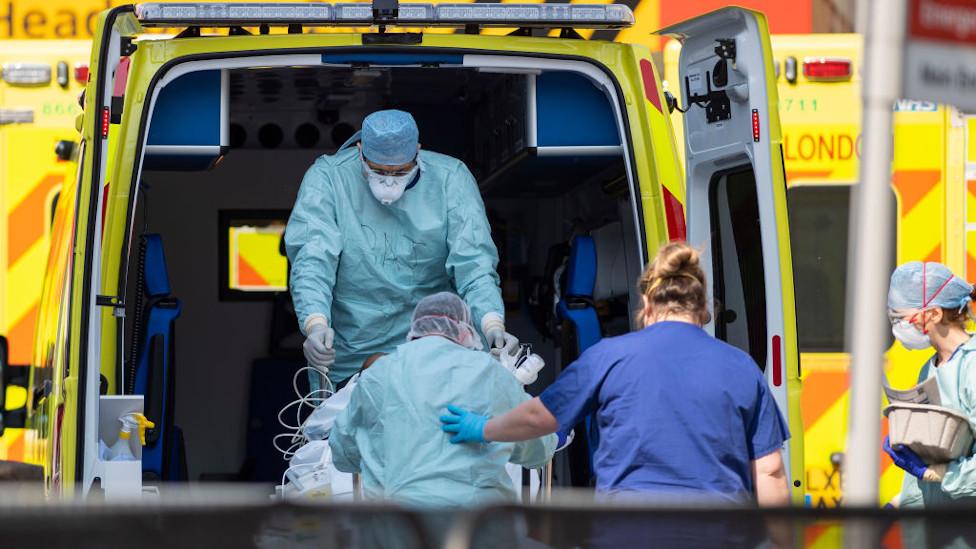Coronavirus: 'Daunted and excited' junior doctors start careers early
- Published

Ammena Zahabi, Jordan Foley and Maisha Choudhury will soon start their careers as doctors
Do you remember how nervous you felt before you started your first proper job? Now imagine having that sense of trepidation while also knowing that you will soon have people's lives in your hands.
That is exactly the situation faced by the new generation of medics who are joining the long fight against coronavirus.
Junior doctors usually start work in August but this year's graduations have been pushed forward to boost numbers in the NHS battling the invisible enemy that is Covid-19.
A total of 7,588 medical students are graduating across the UK. Initially, they will be attached to more experienced doctors, learning the ropes while helping with routine tasks, including taking blood and writing discharge letters.
The BBC caught up with three young medics graduating from Manchester Medical School.
'We need to work where we are required'
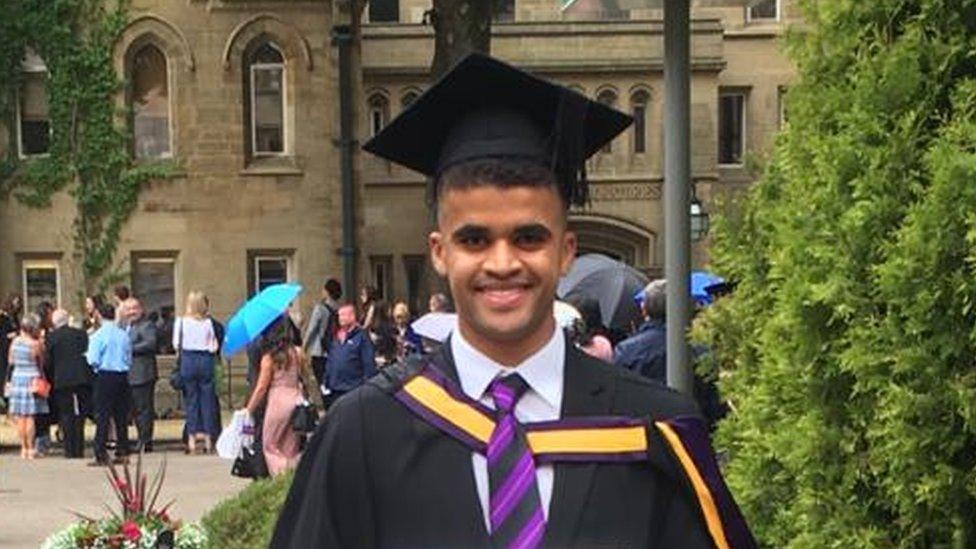
Jordan Foley has mixed emotions as he embarks upon his career in medicine
"It's a bit of a mixture of daunted and excited," said Dr Jordan Foley.
"Even as students, in all the training we've done, we've not done any training in a pandemic environment.
"So even for us, it is a new territory and environment that we will be working in.
"Reports in the news and from the medical front line regarding [shortages of] Personal Protective Equipment (PPE) are concerning.
"I can only hope that the resources are provided for us once we do start working, because obviously many of us do have loved ones, of all sorts of ages, and loved ones with conditions as well."
Allow Facebook content?
This article contains content provided by Facebook. We ask for your permission before anything is loaded, as they may be using cookies and other technologies. You may want to read Meta’s Facebook cookie policy, external and privacy policy, external before accepting. To view this content choose ‘accept and continue’.
The supply of PPE is not the only worry. Being mixed-raced, Dr Foley said he found the number of deaths of NHS staff from Black, Asian and minority ethnic (BAME) backgrounds who contracted coronavirus "frightening".
BBC analysis has found nearly two-thirds of the healthcare workers whose deaths have been publicly announced were from ethnic minority backgrounds.
"As a newly-qualified doctor from an ethnic minority background, I do have to say is it a concern," said Dr Foley.
"As doctors we ultimately do need to work where we are required, to help patients as best as we can, so it is a risk that we may be exposed to - it's just an occupational hazard."
Working in the north of England also means he will be away from his Birmingham home.
"It will be difficult being away from loved ones, especially at such a daunting time as this, but ultimately it's in the interests of everyone's safety."
From August, he will work in respiratory medicine - right on the coronavirus front line.
'It just happened so abruptly'
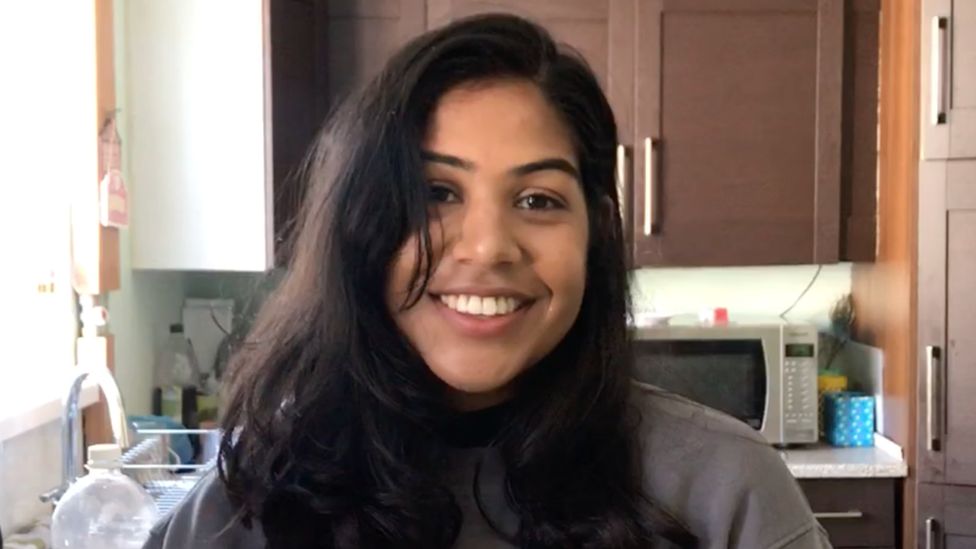
Ammena Zahabi says it would be a "waste" not to use her skills as soon as possible
Like the rest of her colleagues, Dr Ammena Zahabi was notified by email about the plans for her graduating earlier than expected.
"It's a scary thought because it just happened so abruptly. There's no warning to it at all, so you're just kind of thrown into the deep end," she said.
As Dr Zahabi starts work, she will live with her parents. Her pregnant sister, though, has moved out as a precaution.
She is concerned about her colleagues and worries they will not have adequate PPE.
"I don't think it would be fair to say that people like nurses and other healthcare professionals should be treating other people regardless of whatever PPE is available," she said.
"Because at the end of the day we're needed to help facilitate care. We can't do that if were not looked after.
"It's a scary time for everyone, but I just feel like it would be a bit of a waste to not put my skills to use, especially [at a time] that they need us."
'There's a huge sense of good spirit'
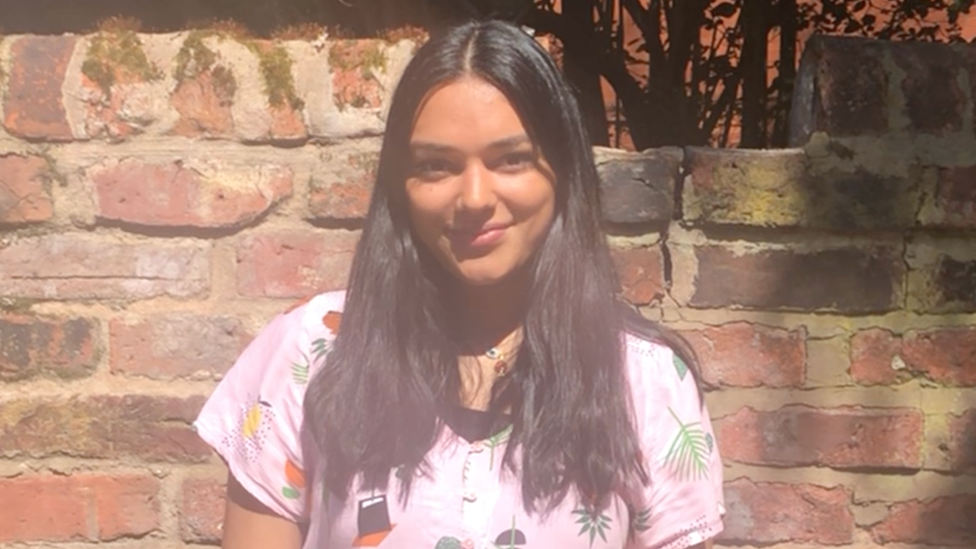
Maisha Choudhury is glad to see "huge" support for the NHS
"I think we're all very nervous and it feels quite scary," Dr Maisha Choudhury said.
"The fact that the NHS created this role for us, I guess means that it's just a testament on how stretched they are.
"If we can help in whatever little way we can, I think it will save lives, hopefully.
"I think we're joining the NHS at a time where you know staff are being really appreciated and valued.
"There's a huge sense of good spirit and being unified against this virus.
"I think that's a really lovely environment to go into and start working in.
"And I think it's really nice that society is appreciating all the key workers that politicians have [previously] called low-skilled - who are finally being celebrated as really integral members of society - which I think is amazing."

A SIMPLE GUIDE: How do I protect myself?
AVOIDING CONTACT: The rules on self-isolation and exercise
LOOK-UP TOOL: Check cases in your area
MAPS AND CHARTS: Visual guide to the outbreak
VIDEO: The 20-second hand wash

- Published11 April 2020
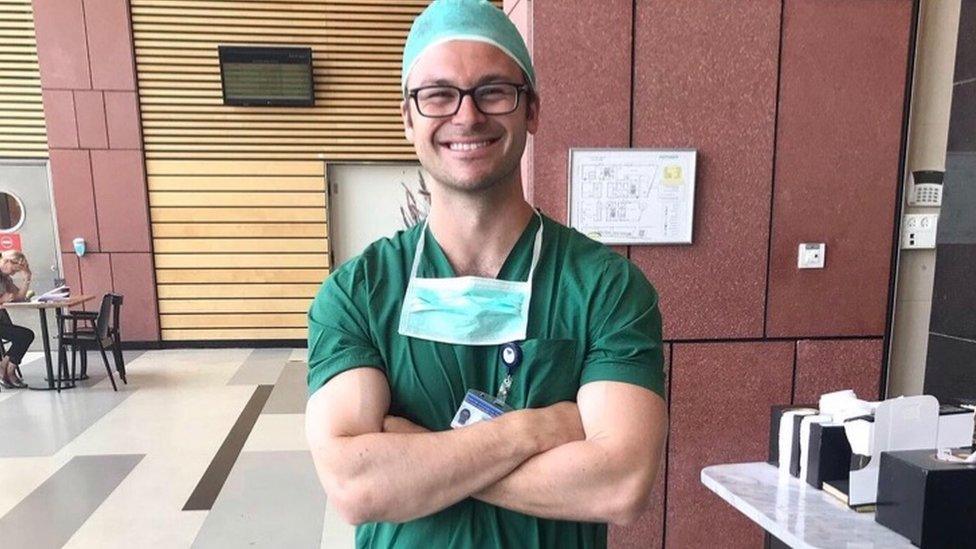
- Published28 April 2020
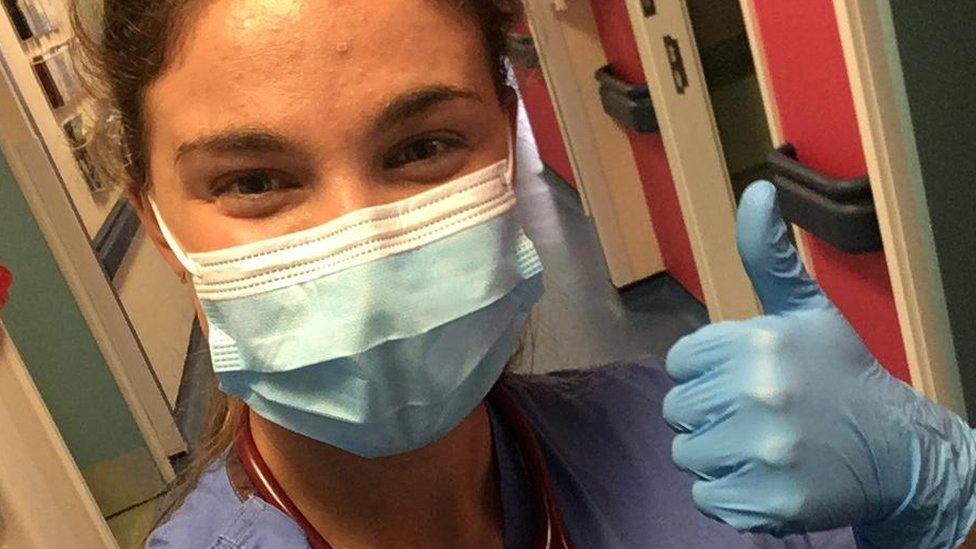
- Published23 April 2020
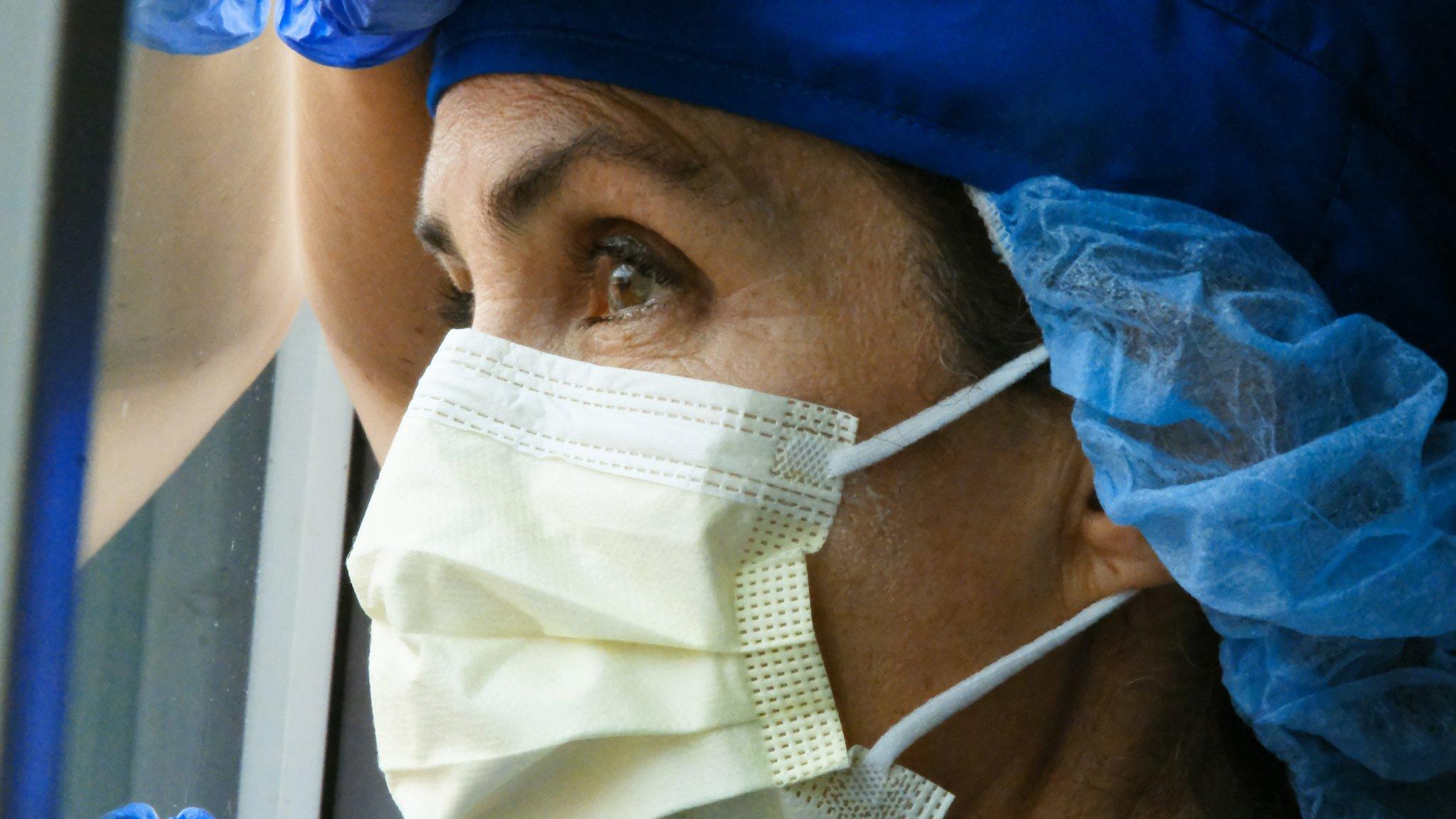
- Published9 April 2020
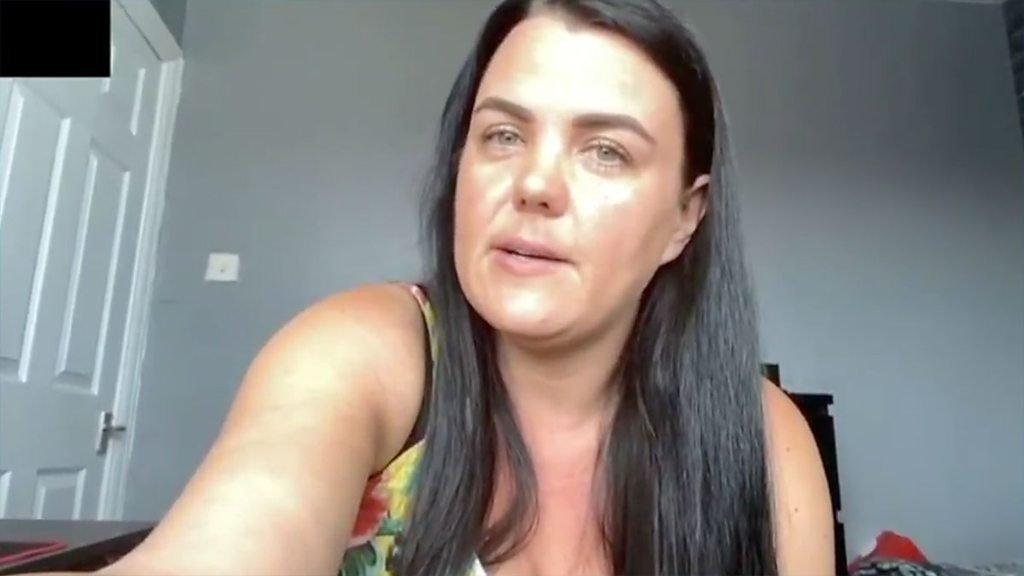
- Published1 May 2020
